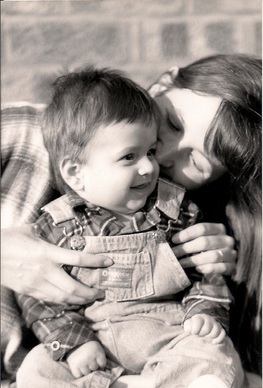By Theresa Larsen, author of Cutting the Soul: A journey into the mental illness of a teenager through the eyes of his mother
I was volunteering at a mental health event recently, talking to people and handing out leaflets. A woman approached the booth and I explained the art project we were promoting and its focus on mental illness. She then told me about her twenty-four year old son, who was experiencing anger, isolative tendencies, and psychosis.
The mother looked at me and said, “I am afraid my son will do a Sandy Hook.”
My eyes widened and my pulse quickened, as I racked my brain for a helpful response to her statement. The first thought that popped into my head was, I’m so glad this is not me. I know this thought was selfish and insensitive, but it was honest. After struggling with my son’s illness for many years, I was relieved that he was finally on a positive path.
The mother’s words reminded me of the book by Liza Long called, The Price of Silence. In her book Liza tells the readers her first thought when she heard about the Sandy Hook shooting, “What if that’s my son someday?” Liza’s words were fresh in my mind, because I had recently stumbled across her writing and like so many other mothers I connected with the words she wrote.
On Tuesday, March 6, 2012 a text message came through on my phone from my then fifteen year old daughter.
“Mom I’m scared, the school is on lock-down. I have been on the floor in the library for almost an hour. Someone has been shot.”
My first reaction to this message was panic and fear, and I did not think of anything else until my daughter was safely in the car. But as I drove home and listened to her describe how her Spanish teacher had brought an AK-47 into school and killed the principal and then himself, my thoughts drifted to her brother who had been coping with serious mental illness and self-harm for years and who, at that moment, was in a psychiatric hospital following a suicide attempt.
My thoughts on that day were similar to Liza Long’s, What if my son kills someone one day? It wasn’t the first time I had wondered this, but it was the first time that it had bubbled to the surface. And here I was more than three years later being confronted with this same thought and still I did not have an answer.
The mother at the mental health event was someone I had never met, yet she was so desperate for help that she uttered her fears to a complete stranger. Maybe it was easier to say this to a stranger than to someone she knew. She was clearly looking for guidance.
I empathized with her worry and loneliness. I encouraged her to communicate with her son, to convince him to see a counselor or go to a support group. I handed her a leaflet from the National Alliance on Mental Illness that provided information about programs and groups in her area, but I felt like it wasn’t enough. I felt like I was giving her a metaphoric pat on the back and sending her away.
What do we have to offer this mother?
There has been a lot of movement to reduce stigma, obtain support, and acquire medical care for those with mental illness, but there is still a great deal of work left to do. We shouldn’t have to wait until our youth commit crimes in order for them to receive the help they so desperately need.
Continue to talk about mental illness, push for medical treatment and appropriate care--fight for the rights you and your children deserve.
Do not think this does not affect you; it affects everyone, because children who have a mental illness are my children, they are your children, they are the nation’s children, and they need everyone’s help.

 RSS Feed
RSS Feed